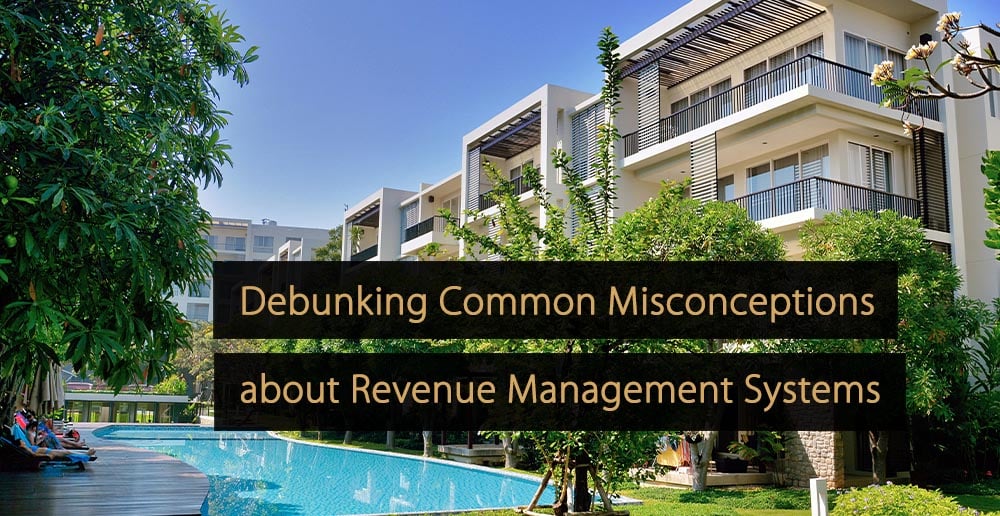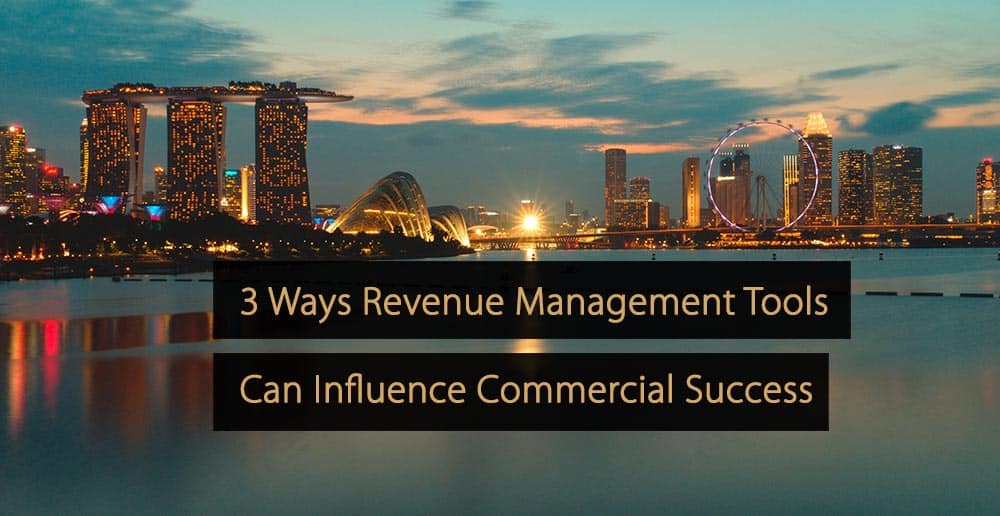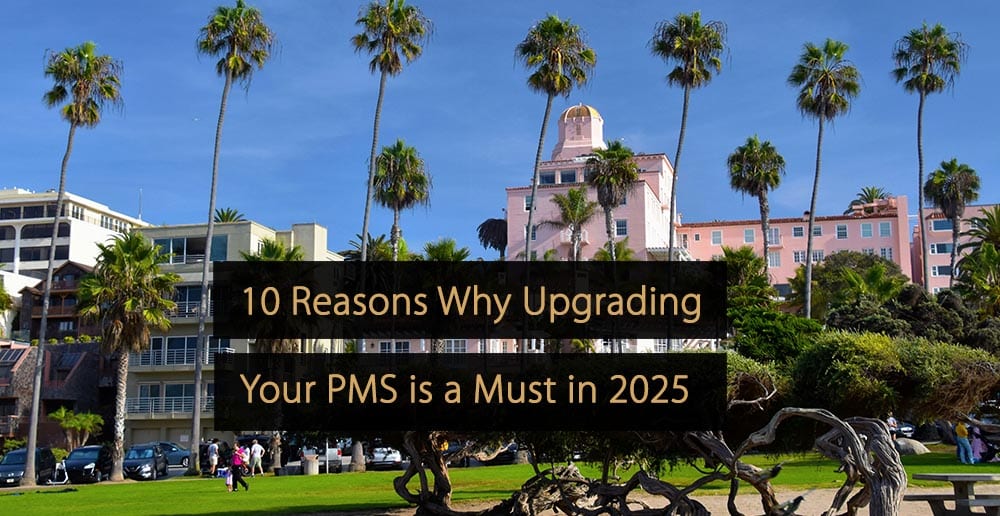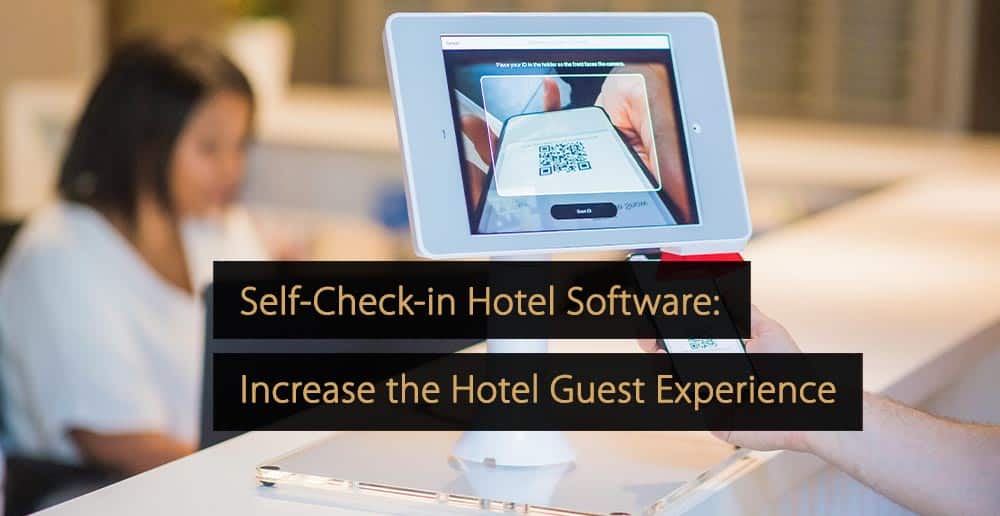Revenue Management Systems (RMS) have become an essential tool for hoteliers aiming to optimize revenue and maintain a competitive edge. Yet, misconceptions and objections often deter some from adopting these systems. In this article, we’ll explore the most common objections and explain why they are often rooted in misunderstanding, shedding light on how RMS can transform revenue management in the hospitality industry.
Debunking 8 Misconceptions about Revenue Management Systems
Misconceptions about RMS often stem from outdated perceptions or a lack of understanding about how far these systems have evolved. By addressing these concerns, it’s clear that an RMS is no longer a luxury but a necessity for properties looking to thrive in today’s competitive hospitality landscape.
1. The Cost of an RMS is Too High
One of the most frequently voiced concerns about adopting an RMS is its perceived cost. Many hoteliers, especially those managing smaller properties, believe that implementing an RMS is an expensive undertaking. This concern often stems from focusing solely on the upfront cost rather than considering the return on investment (ROI).
In reality, an RMS is not just a cost—it’s an investment that pays dividends. By automating pricing strategies and leveraging smart algorithms, an RMS ensures that room rates are optimized based on demand, market conditions, and other key factors. This leads to increased revenue and improved efficiency. For most properties, the additional revenue generated far outweighs the cost of the system.
The real question isn’t whether you can afford an RMS—it’s whether you can afford not to have one in today’s competitive market. The potential to drive measurable revenue growth and reduce operational inefficiencies makes the ROI of an RMS clear.
2. We Already Have a Revenue Management Solution
Some hoteliers hesitate to adopt a new RMS because they’re satisfied with their current solution. Others may fear the effort and disruption involved in switching systems. However, not all RMS platforms are created equal, and clinging to a legacy solution may mean missing out on modern innovations.
Today’s advanced RMS platforms offer capabilities like real-time pricing updates, seamless integrations with Property Management Systems (PMS), and intuitive interfaces that are far more user-friendly. They can also adapt to unique revenue opportunities beyond room pricing, such as managing revenue for parking spaces, co-working areas, or meeting rooms.
If your current RMS lacks flexibility or isn’t keeping up with market trends, it may be time to consider whether a more advanced solution could provide better results and streamline your operations further.
3. It’s Too Complex to Implement
The idea of implementing a new RMS can feel daunting. Hoteliers often worry about the time and effort required to set up the system, train staff, and integrate it with their existing processes. This misconception is rooted in the experiences of older, more complicated systems that demanded extensive technical expertise.
Modern RMS platforms, however, are designed with simplicity in mind. Implementation is typically quick and seamless, with many properties going live within just a few days. These systems come with user-friendly interfaces, ensuring that staff—regardless of technical skill—can easily navigate and utilize the platform.
Additionally, most RMS providers offer comprehensive support throughout the onboarding process, minimizing any potential disruption to daily operations. Implementing an RMS is no longer a complex endeavor but a streamlined process that quickly delivers results.
4. An RMS Isn’t Necessary for a Small Property
A common belief among smaller properties is that revenue management systems are only beneficial for large hotels with extensive inventories. This misconception underestimates the value an RMS can bring, regardless of property size.
A revenue management system helps smaller properties optimize pricing decisions, ensuring they don’t leave revenue on the table. It also saves time by automating tasks like monitoring competitor rates, analyzing demand, and making pricing adjustments. By utilizing an RMS, smaller properties can compete more effectively with larger chains and capitalize on revenue opportunities that would otherwise go unnoticed.
Revenue management isn’t about the size of the property—it’s about working smarter. An RMS is as valuable to a boutique hotel or a small inn as it is to a multinational chain.
5. We Don’t Have a Revenue Manager to Maintain It
For some hoteliers, the absence of a dedicated revenue manager is a deterrent to adopting an RMS. They assume that such systems require expert oversight to operate effectively.
The truth is that modern RMS platforms are built to be intuitive and user-friendly, requiring little to no specialized knowledge. These systems rely on automated algorithms to analyze data and make pricing recommendations, which staff can review and implement with minimal effort.
In fact, many properties without revenue managers find an RMS invaluable because it simplifies complex pricing decisions and allows existing team members to manage revenue strategies efficiently. An RMS is not only a tool for experts—it’s a tool that empowers any team to succeed.
6. Customers Won’t Accept Dynamic Pricing
Dynamic pricing, while standard in industries like airlines and ride-sharing, sometimes raises concerns in the hotel sector. Hoteliers worry that fluctuating prices might alienate guests or create perceptions of unfairness.
However, customer behavior trends indicate that travelers are increasingly familiar with and accepting of dynamic pricing in hospitality. They understand that prices reflect demand and timing, and many appreciate the opportunity to secure lower rates by booking early or during off-peak periods.
Dynamic pricing is about transparency and fairness. By adjusting rates incrementally based on demand, hotels can remain competitive while maximizing revenue without compromising guest satisfaction.
7. Implementation and Training Will Take Too Long
Another common objection is the fear that adopting an RMS will disrupt daily operations and demand too much time for training. This concern is valid but largely misplaced with today’s RMS solutions.
Modern RMS platforms are designed for rapid implementation and ease of use. Most properties are fully operational within a week, and training requirements are minimal thanks to intuitive interfaces. Additionally, support teams are readily available to assist with onboarding and address any challenges.
Adopting an RMS isn’t a time-intensive project—it’s a straightforward process that quickly delivers tangible benefits.
8. Our Team is Already Overwhelmed
Hoteliers often worry that introducing an RMS will add complexity and increase their team’s workload. Ironically, the opposite is true.
An RMS automates many of the time-consuming tasks associated with pricing and revenue management, such as monitoring market trends and competitor rates or calculating optimal pricing. This frees up valuable time for staff to focus on more strategic initiatives or enhancing the guest experience.
Rather than being an additional burden, an RMS is a tool that lightens the load and empowers teams to work more efficiently.
From automating pricing to simplifying operations and maximizing revenue, an RMS is an investment that delivers substantial value, empowering properties of all sizes to succeed in an increasingly data-driven world.
Free Hotel Technology Quiz: Discover Your Hotel’s Technology Level!
Take the quiz now to discover where your hotel stands on the technology spectrum, learn how to build a tech stack that supports your long-term success, and gain valuable insights on enhancing your hotel’s operations with the right technology.
Click here to take the “Hotel Technology Quiz” and discover your hotel’s technology level!
More Tips to Grow Your Business
Revfine.com is the leading knowledge platform for the hospitality and travel industry. Professionals use our insights, strategies, and actionable tips to get inspired, optimize revenue, innovate processes, and improve customer experience.Explore expert advice on management, marketing, revenue management, operations, software, and technology in our dedicated Hotel, Hospitality, and Travel & Tourism categories.







Leave A Comment